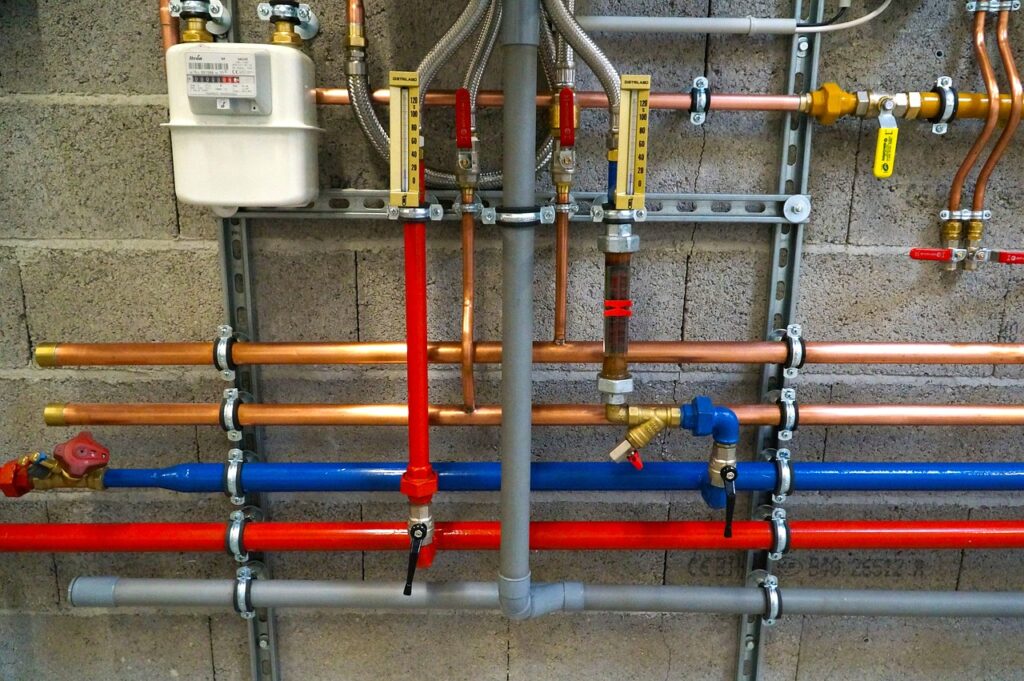The plumbing profession plays a crucial role in maintaining essential systems in residential and commercial spaces. As a plumber, you are responsible for installing, repairing, and maintaining plumbing systems that ensure the smooth functioning of water supply, sewage, and drainage. It’s important to understand salary differences by state, as these variations can significantly impact your earnings and career satisfaction.
We aim to provide valuable insights into plumber salaries across the United States. By understanding these differences, you can make informed decisions about your career path and potentially increase your earning potential. So, let’s dive into the world of plumbing salaries and explore the factors that influence them.
Factors Affecting Plumbing Salaries
Several factors can influence a plumber’s salary. Understanding these factors can help you make better decisions about your career and increase your earning potential. Let’s explore some of the key factors affecting a plumber’s salary.
Experience and Education
As with most professions, experience and education play a significant role in determining a plumber’s salary. Entry-level plumbers typically earn less than their more experienced counterparts. Obtaining formal training and plumbing certifications can also boost your earning potential, as it demonstrates your expertise and commitment to the profession. Consider one of the many trade schools offering plumbing programs.
Industry and Specialization
The industry and specialization in which a plumber works can also impact their salary. For example, plumbers working in commercial or industrial settings might earn more than those working in residential settings. Additionally, specializing in areas such as gas fitting, pipefitting, or sprinkler fitting can lead to higher salaries due to increased demand for these specific skills.
Geographic Location
The geographic location of a plumber’s job can significantly influence their salary. Two primary factors contribute to these differences:
Cost of Living
Areas with a higher cost of living often have higher plumbing salaries to compensate for the increased expenses associated with living in those areas. Plumbers working in urban areas or states with a high cost of living can expect to earn more than those working in rural areas or states with a lower cost of living.
Job Market Demand
Regions with a high demand for plumbers will likely offer higher salaries due to increased competition for skilled workers. Conversely, areas with lower demand for plumbing services might have lower salaries. Understanding the job market demand in your desired location can help you make informed decisions about where to work and what salary to expect.

Top 5 States for Plumbing Salaries
Plumber salaries can vary significantly from state to state. In this section, we’ll provide an overview of the top 5 states for plumbing salaries and explore the factors contributing to their higher pay rates.
Overview of Each State’s Average Plumbing Salary
- New York: The average plumber salary in New York is approximately $63,586 per year.
- Alaska: Plumbers in Alaska earn an average of $66,186 annually.
- Hawaii: The average plumber salary in Hawaii is around $68,065 per year.
- Nevada: In Nevada, the average plumber makes approximately $69,976 per year.
- Oregon: Oregon plumbers earn an average salary of $69,254 per year.
Explanation of Factors Contributing to High Salaries in These States
Several factors contribute to the higher plumbing salaries in these states. High cost of living, particularly in states like New York and Hawaii, necessitates higher wages to compensate for increased living expenses.
Alaska and Nevada, though not as expensive as the other top states, also benefit from specific factors driving up plumbing salaries. Alaska’s remote location and harsh climate create unique challenges for plumbers, leading to higher pay rates.
5 States with Lowest Plumbing Salaries
Just as some states offer higher plumbing salaries, others are known for their lower pay rates. Let’s explore the 5 states with the lowest plumbing salaries and discuss the factors contributing to these lower wages.
Overview of Each State’s Average Plumbing Salary
- Alabama: Plumbers in Alabama earn an average salary of approximately $45,703 per year.
- Arkansas: The average plumbing salary in Arkansas is around $51,024 annually.
- West Virginia: In West Virginia, plumbers make an average of $45,843 per year.
- Ohio: The average plumbing salary in Ohio is approximately $51,837 annually.
- North Carolina: Plumbers in North Carolina earn an average salary of $51,187 per year.
Explanation of Factors Contributing to Low Salaries in These States
Several factors contribute to the lower plumbing salaries in these states. A lower cost of living is one major factor, as it reduces the need for higher wages to cover living expenses. Additionally, these states often have more rural areas with less construction activity, resulting in lower demand for plumbing services.
Furthermore, the presence of fewer large industrial and commercial projects in these states can lead to decreased demand for specialized plumbing skills, limiting opportunities for higher pay. Understanding the factors contributing to lower salaries in these states can help you make informed decisions about your trade career and earning potential.
Comparing Plumbing Salaries to National Averages
Understanding how plumbing salaries compare to national averages can provide a valuable benchmark for evaluating potential career opportunities. In this section, we’ll discuss the national average salary for plumbers and compare it to the state-level salaries discussed earlier.
National Average Plumbing Salary
According to the U.S. Bureau of Labor Statistics, the national average salary for plumbers, pipefitters, and steamfitters was $59,880 per year as of May 2021. This figure can serve as a baseline for comparing plumbing salaries across different states and regions.
How State Salaries Compare to the National Average
As we’ve seen in previous sections, plumbing salaries can vary widely from state to state. The highest-paying states, such as New York, Alaska, and Hawaii, offer average salaries significantly above the national average. On the other hand, the lowest-paying states, like Alabama, Arkansas, and West Virginia, fall below the national average.
It’s important to consider these differences when evaluating potential job opportunities and determining where you’d like to work. Remember that factors such as cost of living, job market demand, and industry specialization can all impact your earning potential. By considering these factors, you can make informed decisions about your career and strive for the best possible salary outcomes.

How to Increase Your Plumbing Salary
Increasing your salary as a plumber is an achievable goal with the right approach. In this section, we’ll discuss strategies to boost your earning potential, including gaining experience and education, choosing a high-demand specialization, and relocating to a state with higher salaries.
Gaining Experience and Education
As mentioned earlier, experience and education play a significant role in determining your salary. Gaining hands-on experience through apprenticeships or on-the-job training can help you develop the skills and knowledge necessary to command a higher salary. Additionally, pursuing relevant certifications and continuing education can demonstrate your expertise and commitment to the profession, further enhancing your earning potential.
Choosing a High-Demand Specialization
Selecting a specialization within the plumbing industry can lead to increased demand for your services and a higher salary. Specializations such as gas fitting, pipefitting, or sprinkler fitting are often in high demand and may offer more lucrative job opportunities. Research the market and determine which specializations are in high demand in your area or the area where you’d like to work.
Relocating to a State with Higher Salaries
As we’ve seen throughout this article, plumbing salaries can vary significantly by state. If you’re willing and able to relocate, you may be able to increase your salary by moving to a state with higher average salaries for plumbers. Keep in mind the factors contributing to higher salaries, such as cost of living and job market demand, when considering relocation options.
By focusing on these strategies, you can work towards increasing your plumbing salary and advancing your career in the industry.
Conclusion
In this article, we’ve explored the importance of understanding plumbing salaries by state and the factors that influence them. Knowing the differences in salaries across states can help you make informed decisions about your career path and potentially increase your earning potential. With this knowledge, you can better navigate the job market and make choices that align with your career goals and financial expectations. We encourage you to use this information as a guide for career advancement and decision-making. As you gain experience, education, and specialized skills, remember to consider the impact of geographic location on your salary. By doing so, you’ll be better positioned to reach your full earning potential and achieve career success in the plumbing industry. And, as always, we’re here to help you navigate the world of education and career guidance, offering resources and support for adult learners and non-traditional students seeking to advance their careers.
